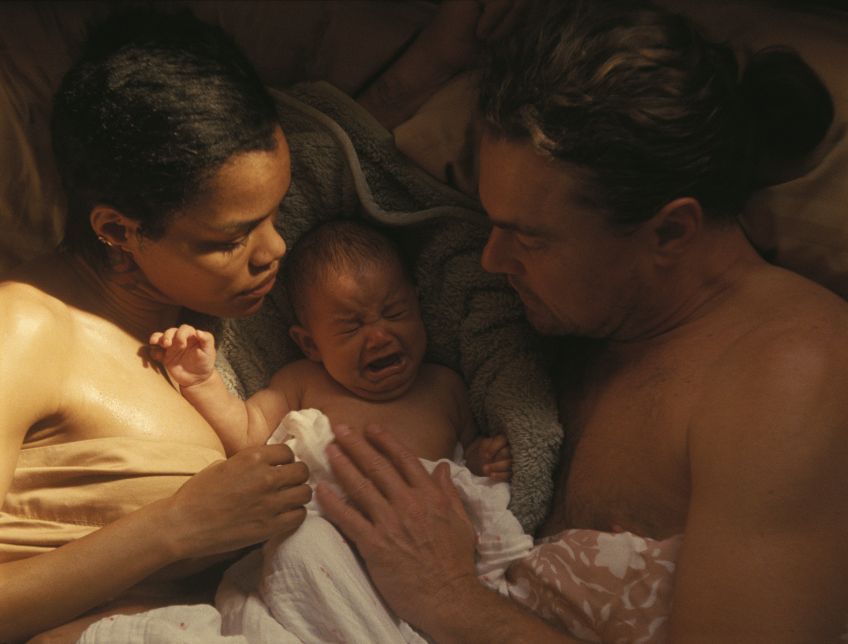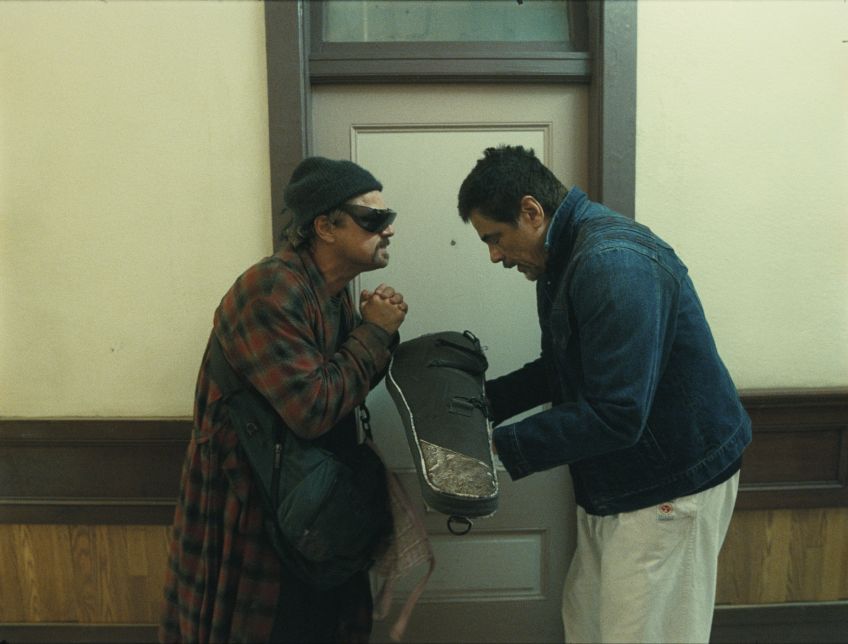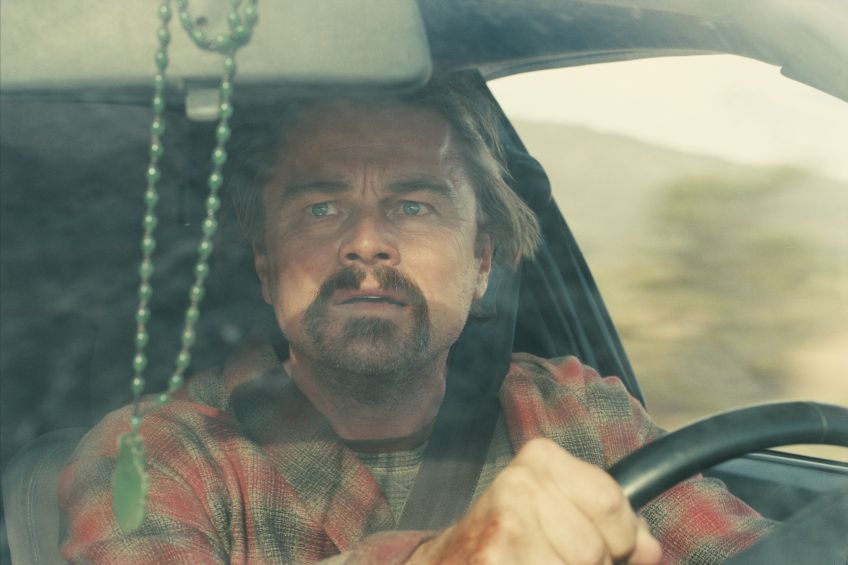Joyce Glasser reviews One Battle After Another (September 26, 2015) Cert 15, 162 mins.
Paul Thomas Anderson (Phantom Thread, There Will Be Blood, Boogie Nights) thrives on a big canvas, mixing humour, socio-political satire, drama and period music while immersing us in a particular era that, for Americans at least, is both nostalgic and revisionary. One Battle After Another, loosely based on Thomas Pynchon’s 1990 novel Vineland, is a flamboyant, insightful look at racism through a long running battle between the far left and far right.
Night at a Mexican border so peppered with migrant camps and barriers that it’s hard to tell what revolutionaries Bob Ferguson (Leonardo DiCaprio) and his sexy partner Perfidia Beverly Hills (Teyana Taylor) are doing. One thing is clear: as part of the militant far-left group called the French 75, they are closer to the Red Army Faction than to collegiate Vietnam protesters.
This is an underground group with aliases and secret codes and even longer canons to recite if they want to be trusted, let alone communicate. They are also armed and dangerous, although we get the impression that Bob, smitten by Perfidia, is along for the ride.
Buildings are bombed and banks are robbed at gunpoint. In one scene, Perfidia, who is Black, shoots a wounded Black guard, crawling across the floor toward his gun.

When Perfidia gives birth to a daughter, Bob opts for family life, while Perfidia chooses the revolution over domesticity. The daughter, Willa (talented newcomer Chase Infiniti) becomes the focus of the film and a mad cap search.
And that’s where the fun starts.
During a nighttime operation, Perfidia comes across the psychotic Col. Steven J Lockjaw, played by Sean Penn trying to outdo Peter Sellers’ in Dr Strangelove. Surprising Lockjaw, Perfidia gets the upper hand, humiliating him sexually, but also sparking his hidden desire for beautiful Black women.
When the tables are turned and Perfidia is captured, Lockjaw gives her a chance to avoid life in prison by ratting on her colleagues. He sets her up in a safehouse although Perfidia escapes and is never seen again.
We assume that at some point they have sex because sixteen years later, Lockjaw, using his military resources, sets out to find her.
This search is not motivated by love but by fear of being outed. For Lockjaw is proud to have been invited to join the exclusive Christmas Adventurers’ Club, the criteria for entry being as repulsive as the bank robbery. This is a deep-state white supremacist coterie and if Willa is proven to be the new member’s daughter, it’s curtains.
Meanwhile, Willa, now a smart, beautiful and gutsy sixteen-year-old who takes after her mother, is living undercover with her father, Bob, somewhere in southern California. Alienated from French 75, bored, but fearful of being caught, Bob has let himself go on beer and drugs. The daughter he brought up has become his carer and equal.
When Willa goes missing, Bob has to rely on the old, scattered network to help find her before Lockjaw does. But in a hilarious running gag, Bob who is out of practice and has messed up his head with years of drugs and booze, cannot remember the codes.
If anyone can help it’s calm, resourceful and well-connected Sergio St. Carlos (a twinkling, no-nonsense Benicio del Toro) whose shop is a front for a labyrinthic house hiding migrant mothers and children.

Anderson’s last film, Licorice Pizza, was a nostalgic romp through Southern California in the 1970s during the OPEC oil talks. Like One Battle After Another, it featured a large cast of extras and supporting actors, but One Battle offers a more focused and immersive experience. What Anderson retains from Licorice Pizza is the broad canvas, Michael Bauman’s vista vision cinematography, Andy Jurgensen’s sharp editing and Jonny Greenwood’s seamless music.
Leonardo DiCaprio plays the washed up anti-hero here as well as he did in Once Upon a Time in Hollywood. DiCaprio makes an unconvincing revolutionary (which is a tribute to his acting skill), but a convincing ex-revolutionary (equally challenging). Once again, he could be Oscar nominated for his ability to mix self-deprecating vulnerability, relatability, humour and the paternal love that spurs him on to save Willa from his parents’ mistakes.
After an unengaging opening, the film is a lot of fun but it’s not perfect. Sean Penn needs reining in. His self-indulgence is not funny but is obviously supposed to be. His character’s attraction to the very thing he pretends to find repugnant, adds an interesting dimension to the film, but he’s too much of a buffoon to be a real threat.
Then there’s the decision not to adapt the novel, but to remake it for 2025. Anderson paints a scary picture of the far right, but the focus is on its obsession with race and immigration, and not much else. Even more problematic is the far left because French 75’s mission is more anarchistic than idealistic or principled. They are all more appealing lying low, or on the run, victims of Perfidia’s disloyalty.




